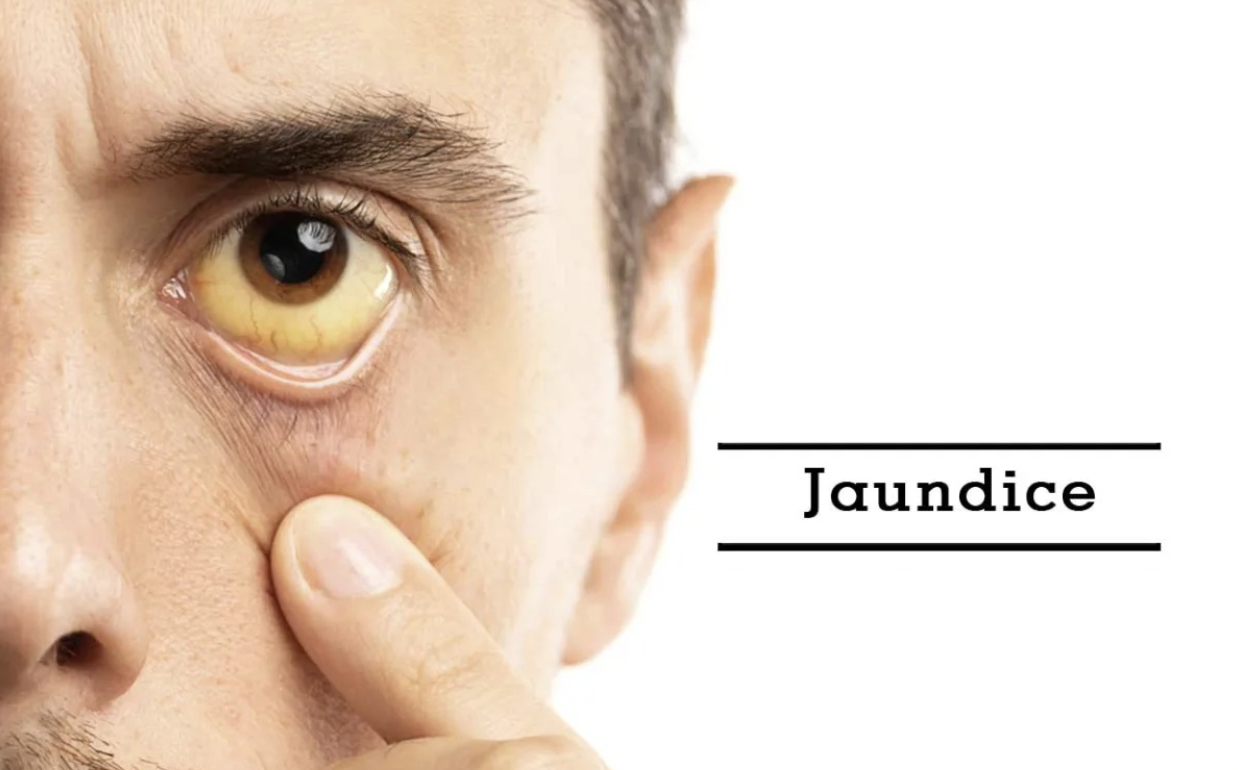Overview

Jaundice is characterized by discoloration of yellowing of skin and eyes. Such discoloration happens because of excessive bilirubin in the body. Jaundice is associated with imbalance in the functioning of the liver. Any disruption in the liver may increase your chances of developing this condition. Understanding the underlying cause of jaundice is essential to treat it. Be watchful of the symptoms and visit a doctor if you experience them persistently.
Who is a Jaundice Specialist?
While the initial stage of jaundice may be addressed by a general physician, it is recommended to visit a jaundice specialist in case of an advanced stage. A gastroenterologist and hepatologist are the key specialists involved in the treatment of this condition.
A gastroenterologist diagnoses and manages conditions related to the gastrointestinal tract, including the liver and gallbladder. They help identify the causes of the condition, such as gallstones, hepatitis, or any pancreatic disorder. A liver specialist or hepatologist focuses on complex liver-related issues like cirrhosis or chronic hepatitis that may lead to jaundice. Together, these professionals play a vital role in evaluating the underlying cause of your case and recommending the best treatment option.
When to See a Jaundice Specialist?
According to Dr. Anando Sengupta (jaundice specialist in Ashok Vihar), you should be watchful of the following symptoms:
- Yellowing of the Eye and Skin: It is the primary symptom of jaundice. Yellowing happens because of increased levels of bilirubin in the liver.
- Dark Urine: Urine may become dark yellow or even brown because of the presence of excess bilirubin.
- Pale Stools: Persistent pale stools are another common sign that you may have jaundice and require medical attention.
- Itching: Elevated bilirubin levels may cause excessive itching in some people.
- Abdominal Pain: If you experience excessive abdominal pain in combination with the above-listed symptoms, you should see a liver specialist for the diagnosis of jaundice.
- Nausea and Vomiting: Nausea and vomiting, along with fever and chills, are other common symptoms of jaundice.
- Fatigue: Jaundice may also lead to generalized tiredness or weakness, especially if the cause of the condition is a chronic liver disease.
Treatment
Before suggesting treatment, the process involves running several tests to confirm the diagnosis and determine the underlying cause of the condition.
Medical History
The jaundice specialist will ask about your medical history, symptoms, and recent changes in your health and lifestyle. They may also initiate a physical examination to assess for signs of liver disease.
Blood Tests
The doctor will run the following blood tests to confirm the diagnosis:
- Liver function tests or LFTs measure the level of liver enzymes, bilirubin, and other substances.
- Complete blood count or CBC to identify conditions like infections and anemia that may be the cause of jaundice
- Bilirubin levels are measured to determine conjugated and unconjugated bilirubin levels in the blood and to determine the type of jaundice.
Imaging Tests and Biopsy
In addition to blood tests, the doctor may also suggest imaging tests, including abdominal ultrasound, CT scan, or MRI, to visualize the bile ducts and gallbladder to detect obstructions or structural abnormalities. In some cases, they may perform a liver biopsy to get a sample of liver tissue for examination. It is usually done to diagnose chronic liver conditions or specific liver diseases. Other tests that the doctor may recommend include urine and stool tests.
Jaundice requires prompt diagnosis and treatment. After ruling out the cause of your condition, the jaundice specialist will suggest the following treatment options:
- Diagnosis and Management: Depending on the cause and severity of your condition, the doctor will suggest a treatment plan involving medical and surgical options or hospital admission for further care and monitoring.
- Antiviral and Steroid Medications: If the cause of the condition is viral hepatitis, the jaundice specialist will prescribe antiviral medications to control the infection and reduce liver inflammation. In cases where inflammation is a primary factor, they will prescribe a corticosteroid to manage symptoms and reduce inflammation.
- Medication Adjustments: In addition to prescribing medication, the doctor will also suggest making adjustments to your existing medication. It may involve changing to a different medication or altering the dosage to prevent further complications.
- Surgical Intervention: In all cases where the cause of jaundice is gallstones, the doctor will perform surgery to remove the gallbladder. Gallstones may block the bile duct, resulting in complications. When bile duct obstructions, such as tumors and other blockages, cause jaundice, surgery becomes crucial to restore bile flow.
- Dietary and Lifestyle Changes: Dietary and lifestyle changes also constitute vital parts of jaundice treatment. The jaundice doctor will prescribe iron supplements for jaundice linked to anemia or iron deficiency. You will be advised to consume a healthy diet, reduce the consumption of alcohol, and exercise regularly.
Why Choose Dr. Sengupta?
Dr. Anando Sengupta is a jaundice specialist in Ashok Vihar, providing comprehensive care to patients diagnosed with this condition. From diagnostic tests and scans to liver disease management and post-recovery counseling, the doctor assists you at every stage during your treatment.
- Anando Sengupta provides patient-centric care by prioritizing comfort, safety, and satisfaction of the patient, fostering a supportive and empathetic environment.
- The doctor offers a holistic healthcare approach by covering a wide spectrum of specialities and services required for the treatment of jaundice.
- With over 5 years of experience, Dr. Anando Sengupta is the best jaundice specialist in Ashok Vihar. His clinic in Ashok Vihar is equipped with state-of-the-art medical equipment and technology that help in enhancing diagnostic accuracy, treatment efficacy, and patient outcomes.
- Beyond treating illness, the doctor emphasizes taking proactive measures to promote wellness and prevent disease through personalized health screenings and lifestyle counselling.
Frequently Asked Questions
The primary sign you may have jaundice includes yellowing of the skin and eyes. It is caused by increased bilirubin levels.
Mild jaundice may resolve on its own. However, it may signal an underlying condition. It is best advised to seek treatment.
In mild cases of jaundice, it may take 1-2 weeks to recover with proper treatment. The advanced cases may take some more time, up to 3-4 weeks.
Food items to avoid if you have jaundice include fatty food items, fried and oily foods, alcohol, caffeine, and spicy foods, to name a few.




